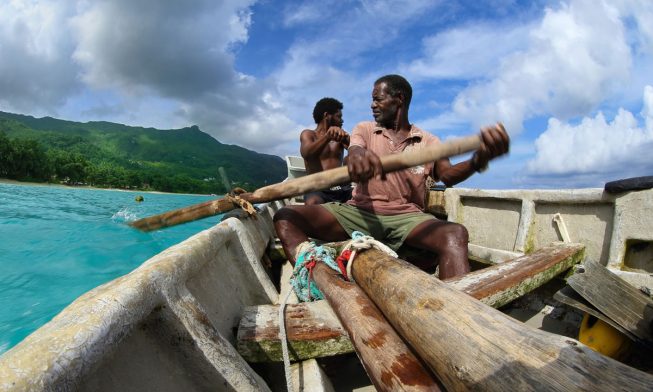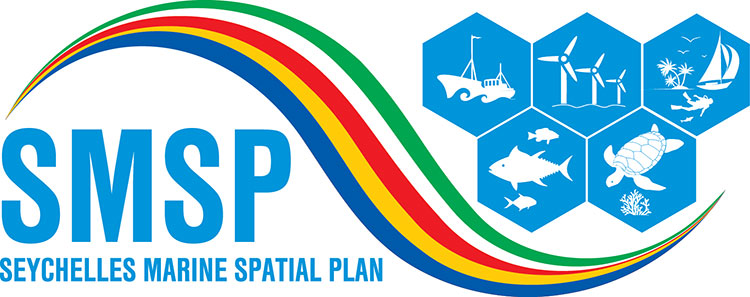
Photo by Manu San Félix/National Geographic, shot during the Pristine Seas expedition to Seychelles, March 2015.
The guiding principles of the MSP Initiative lay the foundation for the MSP process and determine the basic or essential qualities of the process and its outputs. The Seychelles MSP Initiative developed ‘Guiding Principles’ during stakeholder consultations in 2014-2015.G
Guiding Principles
- Integration and coordination with all Laws, Regulations, Acts, Legal Agreements, National Policy, Authorised Management Plans in Seychelles. Integration with national strategies, coals, and action plans. Integration with all marine stakeholders and consider co-management arrangements, where possible
- Transparency, inclusivity and participation are cornerstones of the engagement, consultation and communication with stakeholders and civil society.
- The marine plan is built to include environmental stewardship, social and economic equity and to improve ecological sustainable development.
- An ecosystem-based approach is used that recognises the full array of interactions within an ecosystem, including humans, rather than considering single issues, species or ecosystem services in isolation.
- Article 15 of the Rio Declaration on Sustainable Development states that: “In order to protect the environment, the Precautionary Approach shall be widely applied by States according to their capabilities. Where there are threats of serious or irreversible damage, lack of full scientific certainty shall not be used as a reason for postponing cost-effective measures to prevent environmental degradation”.
Practical approaches for developing the Seychelles Marine Spatial Plan (MSP:
- Use “Global Best Practices” for MSP and for development of MSP outputs.
- Balance ecological, economic, social, cultural objectives in development of the plan
- The outputs of the plan must be feasible, practical, implementable, and financially sustainable.
- The marine spatial plan is a dynamic, living document and will adapted, and revised over time.
- Use relevant spatial and temporal scales, recognising the importance of scale and resolution in the development of technical planning products and MSP outputs.
The Seychelles MSP Initiative principles were adapted from the 2009 IOC-UNESCO Step-by-step marine planning guide (Ehler and Douvere 2009).
| Marine Spatial Planning Initiative Principles | |
| Integrated | Address the interrelationship among issues and sectors and between nature and development; integration can help create complementary and mutually reinforcing decisions and actions. |
| Ecosystem-based | Safeguard ecosystem processes, resilience, and connectedness, recognizing that that ecosystems are dynamic, changing and sometimes poorly understood (therefore requiring precautionary decision-making). |
| Public Trust | Marine resources are part of the public domain, not owned exclusively or benefited by any one group; decisions should be made in the interest of the whole community and not any one group or private interest. |
| Sustainability | Decision making should take into account environmental, economic, social and cultural values in meeting the needs of the present without compromising the ability of future generations to meet their needs. |
| Transparency | The processes used to make decisions should be easily understood by the public, allow citizens to see how decisions are made, how resources have been allocated, and how decisions have been reached that affect their lives. |
| Participatory | Communities, persons, and interests affected by marine resource or activity management should have an opportunity to participate in the formulation of ocean management decisions. |
| Precautionary | Article 15 of the Rio Declaration on Sustainable Development states that: “In order to protect the environment, the precautionary approach shall be widely applied by States according to their capabilities. Where there are threats of serious or irreversible damage, lack of full scientific certainty shall not be used as a reason for postponing cost-effective measures to prevent environmental degradation”. |
| Adaptive | MSP is a continuing, iterative process that learns and adapts over time. |
Ehler, Charles, and Fanny Douvere. 2009. Marine Spatial Planning: a step-by-step approach toward ecosystem-based management. Intergovernmental Oceanographic Commission and Man and the Biosphere Programme. IOC Manual and Guides No. 53, ICAM Dossier No. 6. Paris: UNESCO. 2009.
Page updated: 9 Oct 2017
